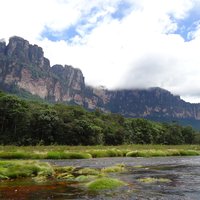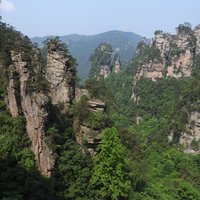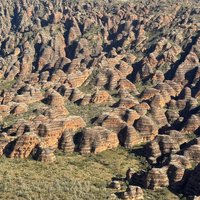Connected Sites
-
-
"more than 3,000 narrow quartz sandstone pillars" (OUV) and "The most notable geographic features of the park are the pillar-like formations that are seen throughout the park. Although resembling karst terrain, this area is not underlain by limestone and is not the product of chemical dissolution, which is characteristic of limestone karst. They are the result of many years of physical, rather than chemical, erosion. Much of the weathering that forms these pillars is the result of expanding ice in the winter and the plants that grow on them." (wiki)
-



